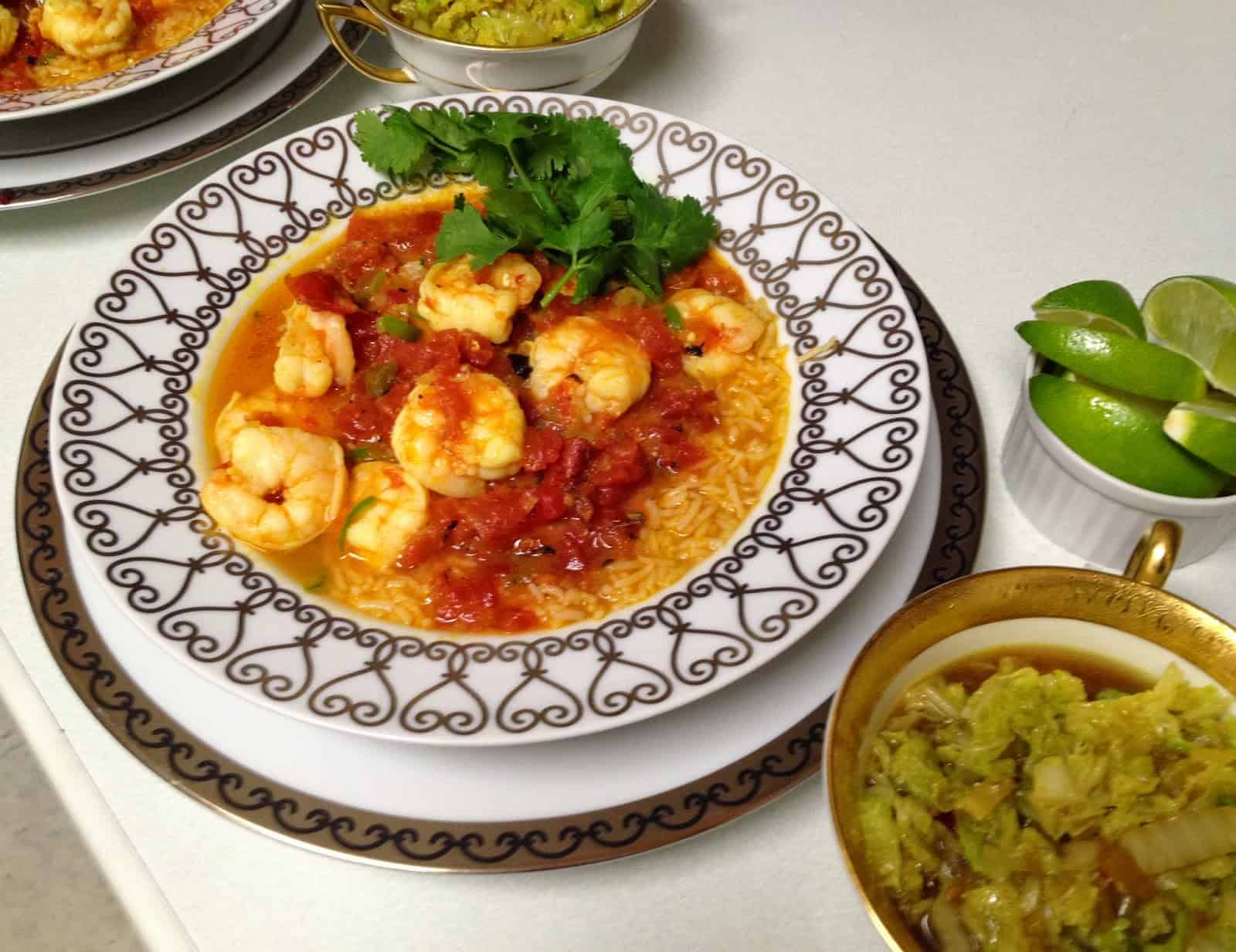In the end, what you learn about Burma is that its cuisine is unlike any other Asian style of cooking. It took techniques from China, breads and biryanis from India and shares ingredients found in Thai cooking. The techniques may be the same but the food is decidedly not. I chose to make two dishes that immediately caught my eye: One was for a simple shrimp curry and the other for a stir-fry of cabbage that was recommended as a side dish to accompany it. These recipes were very simple to make. And their ingredients are easy to find in any large supermarket—particularly one with an Asian food aisle. In fact, aside from the Fish and Oyster Sauces, you don’t even have to haunt that aisle to put these dishes on your dinner table. Even the chiles they contain are given a list of easy-to-find chile substitutes. What was amazing about these results is that this not fire-eating Asian or Indian cuisine. If anything, Andrew and I might have squirted a little sriracha into both because we like heat. But you could probably serve this to a young child without getting a grimace. Tomatoes are a great foil for shrimp and this dish is beautiful to look at. Although the original recipe gave the lime as an optional ingredient, do not leave it out. It elevates the entire dish. The side dish, a stir fry of Napa Cabbage, gets its somewhat smoky flavor from the Oyster Sauce but again, it’s mild and tame. Here are the recipes for a dinner that you can get on the table in well under an hour.
Recipe for Burmese Shrimp Curry from Naomi Duguid’s “Burma:Rivers of Flavor.”
Serves 4. Under 30 minutes to make.
Generous 1 pound smaller shrimp, peeled and deveined
¼ cup minced shallots
½ teaspoon minced garlic
3 tablespoons peanut oil
⅛ teaspoon turmeric
1½ cups chopped ripe tomatoes or canned crushed tomatoes
¾ cup water
2 teaspoons fish sauce
2 green cayenne chiles, seeded and minced, or to taste
½ teaspoon salt, or to taste
About ¼ cup coriander leaves (optional)
1 lime, cut into wedges (optional)
1. Rinse the shrimp and set aside. If you have a mortar, pound the minced shallots and garlic to a paste. Heat the oil in a wok or a wide heavy skillet over medium-high heat. Add the turmeric and stir, then toss in the shallots and garlic, lower the heat to medium, and cook, stirring frequently, until softened and translucent, about 2 minutes.
2. Add the tomatoes and cook for several minutes at a medium boil, stirring occasionally, until the tomatoes are well softened and the oil has risen to the surface.
3. Add the water and fish sauce, bring to a medium boil, and add the shrimp. Cook for several minutes, or until the shrimp start to turn pink, then toss in the minced chiles and salt, stir briefly, and remove from the heat. Taste and adjust the seasoning if necessary.
4. Turn out into a bowl, top with the coriander leaves, if using, and put out lime wedges, if you wish. Serve hot or at room temperature.
